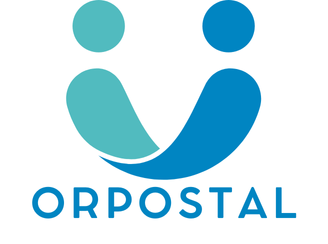Unlocking the Power of Blockchain: Transforming Multi-Party Transactions in Supply Chain Management to Blockchain in Supply Chain Management
The integration of blockchain technology into supply chain management is a game-changer, offering a plethora of benefits that can revolutionize the way businesses operate. At its core, blockchain is a distributed ledger technology that ensures transparency, security, and efficiency in transactions. Here’s how it is transforming the supply chain landscape.
Enhancing Transparency and Traceability
One of the most significant advantages of using blockchain in supply chain management is the enhanced transparency and traceability it provides. Here are some key ways this is achieved:
Additional reading : Exploring the Impact of AI on Revolutionizing Customer Support Services Today
Immutable Ledger
Blockchain technology creates an immutable ledger where all transactions are recorded in real-time. This means that once a transaction is recorded, it cannot be altered or deleted, ensuring the integrity of the data[3].
Real-Time Tracking
Telecom-enabled IoT devices can track the movement and condition of goods in real-time, with the data stored on the blockchain. This allows for real-time tracking of products, ensuring that all stakeholders have access to the same information[3].
In the same genre : Master your online security with a smart password generator
Single Source of Truth
All participants in the network can view the entire transaction history without restrictions. This single source of truth reduces information asymmetry and increases trust among stakeholders, making it easier to manage and verify the authenticity and quality of products[3].
Example: Cold Chain Management
In the pharmaceutical industry, temperature-sensitive products require strict monitoring to ensure compliance with safety standards. IoT sensors can monitor the temperature of these products throughout the supply chain, and this data is transmitted to the blockchain. This ensures that any deviations from the required temperature range are immediately detected, maintaining the quality and safety of the products[3].
Improving Security and Data Integrity
Blockchain technology is renowned for its robust security features, which are crucial in supply chain management.
Cryptographic Techniques
Blockchain uses advanced cryptographic techniques to ensure the integrity and confidentiality of data. This makes it extremely difficult for hackers to compromise the system, as any attempt to alter the data would be immediately detected[3].
Decentralized Control
Control and decision-making processes are distributed across a network of multiple computers rather than being centralized in a single entity. This decentralization enhances transparency, security, and resilience against failures and attacks[3].
Table: Comparison of Traditional vs. Blockchain-Based Supply Chains
| Feature | Traditional Supply Chains | Blockchain-Based Supply Chains |
|---|---|---|
| Transparency | Limited visibility; information often siloed | Real-time visibility; single source of truth |
| Security | Vulnerable to data tampering and fraud | Immutable ledger; cryptographic techniques |
| Efficiency | Manual processes; prone to errors | Automated processes; smart contracts |
| Traceability | Difficult to track products | Real-time tracking; IoT integration |
| Compliance | Complex and time-consuming compliance checks | Automated compliance checks through smart contracts |
| Cost | High administrative costs; intermediaries involved | Lower operational costs; reduced need for intermediaries |
Streamlining Operations with Smart Contracts
Smart contracts are a key component of blockchain technology, enabling the automation of various supply chain processes.
Automated Payments
Smart contracts can trigger automatic payments upon delivery confirmation, reducing delays and disputes. For instance, in logistics, once a shipment is delivered, the smart contract can automatically release the payment to the supplier, streamlining the payment process[3].
Inventory Management
Smart contracts can automate inventory management by updating stock levels in real-time. This ensures that all stakeholders have accurate and up-to-date information, reducing the risk of stockouts or overstocking[3].
Example: Mastercard’s Crypto Credential Initiative
Mastercard’s Crypto Credential initiative is a prime example of how blockchain can simplify complex processes. By integrating email addresses or mobile numbers into the system, Mastercard removes the need for long wallet addresses, making transactions as simple as sending an email or text message. This initiative also includes KYC standards and compliance measures, ensuring that transactions meet legal standards and are secure[5].
Enhancing Business Efficiency and Global Liquidity
Blockchain technology not only improves the operational efficiency of supply chains but also opens up new avenues for global liquidity.
Operational Efficiency
Blockchain’s transactional transparency improves data accuracy, reduces errors, speeds up settlements, and lowers operational costs. It automates routine tasks like payments, compliance checks, and record-keeping, boosting business efficiency[4].
Global Liquidity
By tokenizing assets and using blockchain, businesses can seamlessly tap into global markets, breaking free from traditional infrastructure limitations. This unlocks greater liquidity for assets, enabling businesses to access a broader investor base worldwide[1].
Practical Insights and Actionable Advice
For businesses looking to integrate blockchain into their supply chain management, here are some practical insights and actionable advice:
- Start Small: Begin with a pilot project to test the feasibility and benefits of blockchain in your supply chain.
- Collaborate: Work with other stakeholders in the supply chain to ensure a unified approach to blockchain adoption.
- Invest in Education: Train your team on the basics of blockchain technology to ensure smooth implementation.
- Choose the Right Platform: Select a blockchain platform that aligns with your business needs and regulatory requirements.
Quotes from Industry Experts
- “Blockchain technology, and public blockchains in particular, are opening up a number of new use cases one of which is to transfer value — such as remittances — from one country to another,” – Raj Dhamodharan, EVP Blockchain and Digital Assets at Mastercard[5].
- “Privacy-preserving, reusable digital identity solutions are fundamental to unlocking tokenization’s full potential, enabling streamlined onboarding, real-time verification, and programmable compliance,” – J.P. Morgan report[2].
The Future of Supply Chain Management with Blockchain
As blockchain technology continues to evolve, its potential to transform supply chain management is becoming increasingly evident. Here are some future trends and use cases to watch out for:
Integration with Artificial Intelligence
The integration of blockchain with artificial intelligence (AI) can further enhance supply chain operations. AI can analyze the vast amounts of data generated by blockchain to predict demand, optimize inventory levels, and improve logistics[3].
Cross-Border Transactions
Blockchain is set to revolutionize cross-border transactions by providing a secure, transparent, and efficient way to transfer value across different countries. This will be particularly beneficial for international trade, reducing the complexity and costs associated with traditional cross-border transactions[5].
The integration of blockchain technology into supply chain management is a transformative step that offers numerous benefits, from enhanced transparency and security to improved efficiency and global liquidity. As the technology continues to mature, it is clear that blockchain will play a pivotal role in shaping the future of supply chain management. By understanding and leveraging these benefits, businesses can position themselves for success in an increasingly complex and interconnected global market.
In the words of Raj Dhamodharan, “The real potential of blockchain can only be realized when users can interact with the network in a trusted, verifiable manner.” As we move forward, it is essential to build trust into the blockchain ecosystem, ensuring that it becomes a seamless and secure framework for multi-party transactions in supply chain management[5].











